Photo AI
Last Updated Sep 26, 2025
China as a global power by 1997 Simplified Revision Notes for A-Level Edexcel History
Revision notes with simplified explanations to understand China as a global power by 1997 quickly and effectively.
292+ students studying
China as a global power by 1997
China UN Security Council
In 1944, as vulnerable countries continued to struggle with the horrifying effects of World War II, leaders of the Allied powers, including the United States, Soviet Union, United Kingdom and the Republic of China, met in Washington, DC at the Dumbarton Oaks Conference to establish an international organisation dedicated to ensuring peace and cooperation between world nations.
Signed and ratified by 51 founding countries, the United Nations (UN) emerged as a post-war peacekeeping organisation and forum to develop friendly relations between world nations and prevent war from happening again.
The UN Security Council, which is the UN's most powerful organ, is also known as the Permanent Five. Those five permanent member states are China, the United States, the United Kingdom, France and Russia (formerly the Soviet Union). Currently, there are ten additional non-permanent members who are elected for two years.
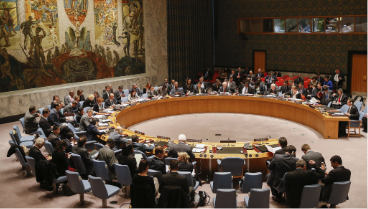
UN Security Council
China took the permanent seat previously occupied by the Republic of China (Taiwan). Since then, the body's composition has remained unchanged. The power of the Security Council comes from its authority to issue legally binding resolutions. The power of the Permanent Five comes from their ability to use their veto power that can override any decision.
Even though many member states strongly opposed the permanent membership and veto of those five countries in 1945, they agreed to "accept and carry out the decisions of the Security Council" under Article 25 of the UN Charter. Under the United Nations Charter, the functions and powers of the Security Council are:
- To maintain international peace and security in accordance with the principles and purposes of the United Nations;
- To investigate any dispute or situation which might lead to international friction;
- To recommend methods of adjusting such disputes or the terms of settlement;
- To formulate plans for the establishment of a system to regulate armaments;
- To maintain international peace and security in accordance with the principles and purposes of the United Nations;
- To investigate any dispute or situation which might lead to international friction;
- To recommend methods of adjusting such disputes or the terms of settlement;
- To formulate plans for the establishment of a system to regulate armaments;
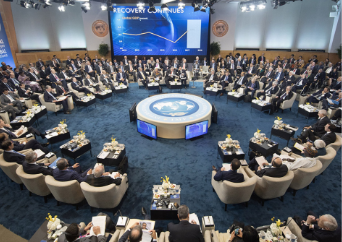
International Monetary Fund
IMF and World Bank
China has been an active participant in international economic institutions like the International Monetary Fund (IMF) and the World Bank. In 1945, China, together with 34 other nations, founded the IMF. The country was able to establish a formal relationship with the latter in April 1980. The relationship mainly revolves around affairs that concern IMF governance and IMF Special Drawing Rights.
Through the years, China has been trying to raise its quota within the IMF in order to expand its political and decision-making power within the organisation.
Based on its efforts, the IMF approved its quota increase from 1.2 billion SDRs to 1.8 billion SDRs after its appeal in May 1980. Moreover, China was able to obtain a single-country seat on the IMF executive board, expanding the number of directors to 22 members.
In 1980, Deng Xiaoping's meeting with the former President of the World Bank Group and Secretary of Defense, Robert McNamara, started a long and positive relationship of the country with the World Bank.
In their meeting, Deng told McNamara that China would modernise more rapidly with the assistance of the World Bank and so for many years, China was their largest client in terms of number of projects and loan amount.
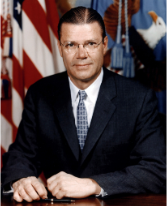
Robert McNamara
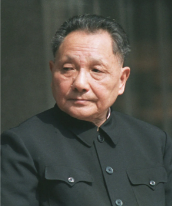
Deng Xiaoping
Cooperation with Japan
The death of Mao in 1976 brought economic reform to the PRC that led to Japanese investments in the Chinese economy. The signing of a long-term private trade agreement between the two countries in February 1978, despite being drastically cut back the next year due to being overly ambitious, still managed to reflect the eagerness of both sides to improve relations.
At the end of 1978, Official Development Assistance (ODA) was offered by Japan to China, another improvement in the relations of the two. Finally, the Treaty of Peace and Friendship between Japan and China that was signed on 12 August 1978 came into effect on 23 October of the same year. Sino-Japanese relations made considerable progress in the 1980s.
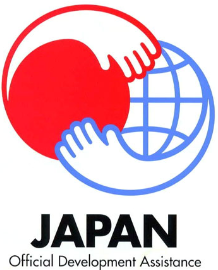
Relations with the USA through the years
US President Richard Nixon visited Chairman Mao Tse-tung in China and signed the Shanghai Communique. The communique improved Sino-American relations, which enabled discussion of difficult issues facing both countries.
China's One China principle was recognised by the US when President Jimmy Carter granted China full diplomatic recognition. That same year, Chinese Vice Premier Deng Xiaoping visited the US.
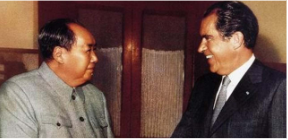
Mao and Nixon
President Ronald Reagan signed the third joint communique to normalise its relations with China. With growing concerns over Soviet expansionism, President Reagan improved Beijing-Washington relations amidst creating stronger ties with Taiwan.
Reagan visited China, and Beijing purchased US military equipment.
The death of around 1,000 of the students who demonstrated at Beijing's Tiananmen Square halted the US government's military sales to Beijing. Moreover, Chinese-American relations stalled.
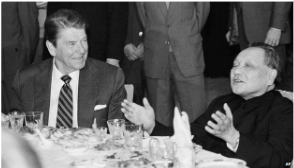
Mao and Nixon
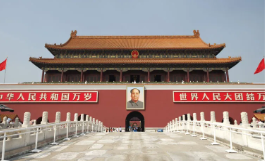
Tiananmen Square
Hong Kong regained
Hong Kong Island was a colony of the British Empire from the end of the First Opium War in 1842, then Kowloon in 1860, and the New Territories in 1898. This was followed by a 99-year lease by the British as part of the agreement.
In 1979, Governor Murray MacLehose, the governor of Hong Kong from 1971 until 1982, raised the impending end of the lease with Deng Xiaoping.
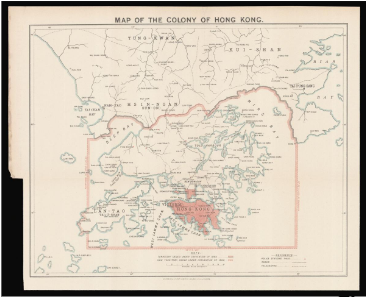
Map of the colony of Hong Kong
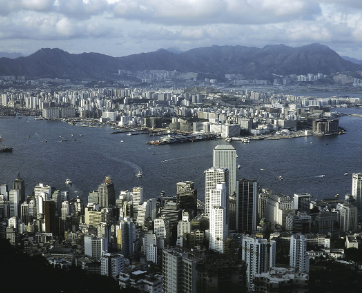
Urban Hong Kong in 1980
In 1984, the Sino-British Joint Declaration was signed stating that the United Kingdom agreed to transfer Hong Kong in 1997. China would ensure that the region's economic and political systems would be maintained by the region for 50 years after transfer, making it a Special Administrative Region (SAR) signifying "one country, two systems".
On 1 July 1997, Hong Kong was transferred to China as a SAR after 156 years of British rule.
Glossary of Terms
One-Child Policy
The policy launched in 1979 that allowed only one child per family unit. This policy had an objective to control the swiftly increasing population in China.
Four Basic Principles
The four principles that Deng Xiaoping believed to be important for China's modernisation while ensuring that the principles of the CCP were still in place
Tiananmen Square Massacre
The Tiananmen Square Massacre was the climax to the rising tensions due to the failures of Deng Xiaoping's reforms
Open Door Policy
A system in which a country is open for trading globally
Four Modernisations
A change in economy implemented by Deng where modernisation was given importance over socialism
Four Freedoms
Recommended by the CCP on 18 August 1977. This was part of the plan to further criticise the Gang of Four as well as the previous government, making Deng Xiaoping favourable.
UN Security Council
The United Nation's most powerful organ, also known as the Permanent Five.
International Monetary Fund
Abbreviated as IMF, this is an international financial institution with a mission to "foster global monetary cooperation, secure financial stability, facilitate international trade, promote high employment and sustainable economic growth, and reduce poverty around the world"
World Bank
An international financial institution that provides loans and grants to countries for the purpose of pursuing capital projects
United Nations
A post-war peacekeeping organisation and forum to develop friendly relations between world nations and prevent war from happening again
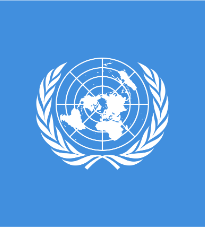
Logo of the United Nations
500K+ Students Use These Powerful Tools to Master China as a global power by 1997 For their A-Level Exams.
Enhance your understanding with flashcards, quizzes, and exams—designed to help you grasp key concepts, reinforce learning, and master any topic with confidence!
290 flashcards
Flashcards on China as a global power by 1997
Revise key concepts with interactive flashcards.
Try History Flashcards24 quizzes
Quizzes on China as a global power by 1997
Test your knowledge with fun and engaging quizzes.
Try History Quizzes29 questions
Exam questions on China as a global power by 1997
Boost your confidence with real exam questions.
Try History Questions27 exams created
Exam Builder on China as a global power by 1997
Create custom exams across topics for better practice!
Try History exam builder120 papers
Past Papers on China as a global power by 1997
Practice past papers to reinforce exam experience.
Try History Past PapersOther Revision Notes related to China as a global power by 1997 you should explore
Discover More Revision Notes Related to China as a global power by 1997 to Deepen Your Understanding and Improve Your Mastery
96%
114 rated
The PRC under Deng Xiaoping, 1976-1997
Power struggle after Mao’s death
378+ studying
190KViews96%
114 rated
The PRC under Deng Xiaoping, 1976-1997
Economic development: Four Modernisations, market socialism
444+ studying
194KViews96%
114 rated
The PRC under Deng Xiaoping, 1976-1997
Political development
298+ studying
199KViews